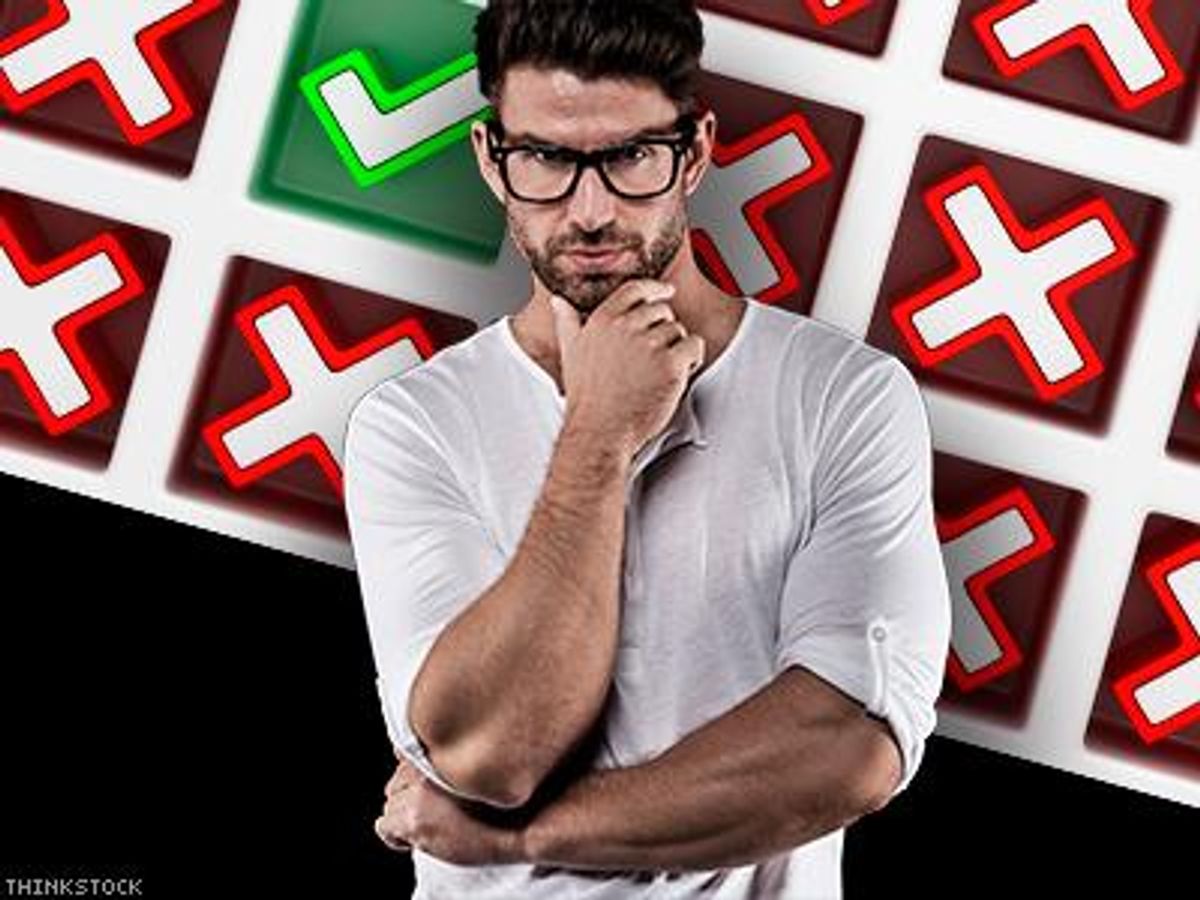
Growing up Catholic left one young man with a label that restricted him for years.
December 16 2014 7:00 AM EST
November 17 2015 5:28 AM EST
By continuing to use our site, you agree to our Private Policy and Terms of Use.

It was 1986. I was 6 years old. I was in kindergarten at Clear Stream Avenue School. Known as the "kissing bandit," I was already pushed to the margins by my peers. My teachers did little to care for me and my hyperactive self: They kept me in during lunch, they kept me isolated, they told my mother that I was destined to be enrolled in an innovative "new" educational program called "special education."
Then one day I needed my teacher urgently -- I had made a mess of myself in the bathroom and told a female classmate to "go find Mr. Libertini!" Little did I know that that day my plea for help would result in years of bullying, emotional and psychological turmoil. I went from a safe outsider or a fringe character to an "other."
I felt a tremendous amount of fear. School was no longer safe, and my teachers provided no safe environment or educational context for me to flourish. I spent the rest of my time in elementary school polarized. What that experience taught me is that negative labeling impinges upon human flourishing.
Some years later, at 14, I told my oldest sister about a sexual experience I had had with a friend of the same sex one day after school. My sister immediately called my mother. At once I was confronted by both my Roman Catholic mother, a woman steeped in the malformation of the Baltimore Catechism, along with my college-bound sister.
Together they charged at me explosively, saying, "You will burn in hell, you faggot." Not words a child expects to hear from a parent or a sibling, especially since the parent and sibling serves as the child's vehicle through which the virtues of faith, hope, and love are transmitted. At once I went from being a Roman Catholic son with an unconditionally loving mother and God to an "other" faced with a world of human limitations, including my own.
I went from being able to explore my sexuality, my gender, and my same-sex sexual attraction in an open, safe, and honest way to the confines of a budding virtual world codified and programmed by AOL, chat rooms, and Internet porn. Experimentation with drugs and alcohol soon followed, escape from reality was the new normal.
Both of these incidents shamed me, embarrassed me -- though thankfully making me naked before God as I understood my God. I was not a "normal" member of my social environment or within my family. I had little placement or belonging among the very people who were supposed to be the conveyors of God's unconditional love. That was my youth and adolescence.
After college, I entered religious life where I decided to become a Roman Catholic priest in the Society of Jesus (the Jesuits). As a Jesuit I studied philosophy and theology. As a religious follower, I learned that negative labeling contributes to structural violence.
Structural violence is the systemic harm caused to human beings or human communities, which results from intolerance and discrimination. At the very least, structural violence leads to the marginalization of those who are viewed as "others", and not as the same as "us". Structural violence describes social structures -- economic, educational, political, legal, religious, and cultural -- that stop individuals, groups, and societies from reaching their full potential. One effect of that is the feeling of shame.
As both a youth and an adolescent I felt this shame; the structures of school, home and religion prevented me from reaching my full potential. I could not be my truest self in school because I was icky, at home because I was straight and at church because I was disordered.
The shame I felt is different from guilt. Shame and guilt are both feelings; each has its own affective expression and bodily reaction, and each can be grounded in human conduct. Guilt is the feeling that results after a violation. If I rob a bank and in the process of robbing the bank hurt an employee and am soon caught by the police, I am certain to feel guilt. The shame I felt as the result of structural violence included self-criticism and self-blame; it targeted my very being (identity) and not simply my actions. The shame I felt reduced my feelings of joy and interest, causing me to feel great humiliation and embarrassment.
It is important to prevent negative labeling from impinging upon human flourishing, before it leads victims of structural violence to feel shame. During the civil rights movement activists spoke about agape love as a means to end structural violence and its correlate affects, negative labeling and shame.
Agape love is brotherly love or charity; it is the love God has for humankind. I learned about agape love in college, and practiced it daily after facing the people who shamed me through psychoanalysis. Through agape love I practice what my peers, my family and my religion wouldn't: mutual recognition and respect. Through agape love society can eliminate the evil caused by structural violence, negative labeling, and shame.
BENJAMIN BRENKERT is a graduate student at the General Theological Seminary, and New York-based writer. Follow him on Twitter @BenBrenkert
Viral post saying Republicans 'have two daddies now' has MAGA hot and bothered